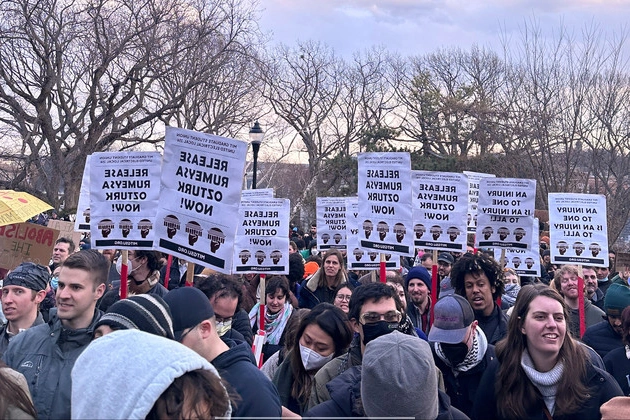
Tufts University is standing in solidarity with Rümeysa Öztürk, a Turkish graduate student detained and fighting deportation after her student visa cancellation.
The university’s intervention in Öztürk’s legal proceedings is a bold move amidst a wave of arrests and visa cancellations involving students accused by the Trump administration of supporting Hamas in response to the Gaza conflict. This stance reflects Tufts’ commitment to supporting its community members in times of adversity.
The Trump Administration’s Impact on Universities
Since the start of the Trump administration’s second term, universities have faced a series of challenges, including funding freezes, diversity investigations, antisemitism probes, and arrests of foreign students linked to pro-Palestinian activism on campus. Many institutions have succumbed to pressure, but Tufts, a renowned research university near Boston, is championing Öztürk’s cause.
Tufts filed a declaration urging a federal judge to secure Öztürk’s release so she can resume her studies and complete her degree. The university’s President, Sunil Kumar, highlighted the overwhelming support from students, faculty, and staff for Öztürk, praising her dedication to academics and community.
A crucial hearing in Öztürk’s case is scheduled, underscoring the urgency of her situation.
Timeline of Öztürk’s Detention
Tufts’ court statement outlines Öztürk’s arrest by immigration officials on March 25 and the subsequent termination of her visa. A viral video, shared by the State Department, captures the moment Öztürk was approached by plainclothes officers near the Tufts campus.
Prior to her detention, Öztürk had a clean immigration record. However, the university received an email the next day informing them of the visa revocation due to potential adverse foreign policy implications.
Öztürk is among several students accused by the State Department of supporting Hamas, leading to their arrests and relocation. The administration’s actions have drawn criticism for their impact on academic freedom and student rights.
University Responses and Political Pressures
Columbia University faced significant pressure from the Trump administration, resulting in the arrest and relocation of students engaged in protests. Other universities, including Georgetown and Dartmouth, have also grappled with political influences on campus activities.
The State Department, under Secretary Marco Rubio, asserts broad powers under the Immigration and Nationality Act to revoke visas for individuals deemed a foreign policy threat. Rubio’s statements on visa revocations highlight the administration’s aggressive stance on perceived dissent.
Legal and Academic Implications
Öztürk’s arrest, stemming from her involvement in campus protests and op-eds critical of university policies, raises questions about free speech and academic autonomy. Tufts’ support for Öztürk underscores the university’s commitment to defending academic freedom and student rights.
The evolving situation highlights the complex interplay between political pressures, academic freedom, and international student rights in the current socio-political climate.
For Tufts University and its peers, navigating these challenges requires a delicate balance between upholding academic principles and complying with federal regulations.











